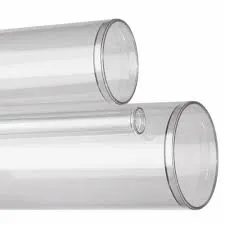ធ្នូ . 10, 2024 02:13 Back to list
Durable HDPE Water Pipes for Efficient Fluid Transportation Solutions
The Advantages of HDPE Water Pipes
High-Density Polyethylene (HDPE) water pipes have become increasingly popular in recent years due to their many benefits over traditional piping materials. As the world seeks sustainable and efficient solutions for water distribution, HDPE has emerged as a frontrunner in the plumbing industry. This article explores the advantages of HDPE water pipes and their role in modern water infrastructure.
1. Durability and Longevity
One of the most significant advantages of HDPE water pipes is their durability. Made from high-density polyethylene, these pipes can withstand harsh environmental conditions, including extreme temperatures and UV exposure. Unlike traditional materials such as PVC or metal that can corrode or become brittle over time, HDPE is resistant to chemicals, rust, and abrasion. This resilience means that HDPE pipes have a longer lifespan, often exceeding 50 years, which reduces the need for frequent replacements and repairs.
2. Flexibility and Ease of Installation
HDPE water pipes are known for their flexibility. This characteristic allows them to bend without breaking, making them ideal for installation in various terrains, including rocky or uneven landscapes. The lightweight nature of HDPE also simplifies transportation and handling during installation, reducing labor costs. Additionally, HDPE pipes can be installed using trenchless technology, which minimizes land disruption and speeds up the installation process. This innovative method is particularly useful in urban areas where traditional excavation may not be feasible.
3. Environmental Impact
In an age of increasing environmental awareness, the production and use of HDPE water pipes present several ecological benefits. HDPE is fully recyclable, which means that at the end of their service life, these pipes can be repurposed for new applications rather than contributing to landfill waste. Furthermore, the energy consumption associated with the production of HDPE is significantly lower compared to other materials, such as metals and concrete. The reduced carbon footprint during both production and installation makes HDPE a more sustainable choice for water infrastructure.
hdpe water pipe

4
. Cost-EffectivenessWhen considering the life cycle costs of piping materials, HDPE often proves to be more economical than alternatives. While the initial investment may be comparable or slightly higher than traditional pipe materials, the long-term savings on maintenance and replacement costs can be substantial. With their durability and resistance to leaks, HDPE pipes help to minimize water loss, leading to further economic benefits for municipalities and water providers. Additionally, their lightweight nature contributes to lower transportation costs, making them a financially viable option.
5. Efficient Water Flow
HDPE water pipes are designed with smooth inner walls, which significantly reduces friction and allows for efficient water flow. This design minimizes pressure loss during transportation, enabling water to reach its destination faster and with less energy expenditure. The enhanced flow rates not only improve water delivery but also contribute to overall system efficiency, which is crucial for maintaining reliable municipal water services.
6. Reduced Risk of Contamination
Health and safety are paramount considerations in any water distribution system. HDPE pipes do not leach harmful substances into the water supply, making them a safe choice for drinking water. Their resistance to scaling and biofouling also helps to maintain water quality and protect against potential contamination, ensuring that communities receive clean and safe water.
Conclusion
In conclusion, HDPE water pipes represent a modern solution to the challenges of water distribution and infrastructure. Their durability, flexibility, environmental benefits, cost-effectiveness, efficient flow, and safety make them a leading choice for municipalities and industries alike. As the global demand for sustainable water management solutions continues to grow, the adoption of HDPE piping systems is likely to increase, ensuring a reliable and safe water supply for future generations. Embracing HDPE technology not only aids in addressing current infrastructure needs but also contributes to a more sustainable and efficient water management system worldwide.
-
Durable PP Rigid Sheet: Lightweight, Chemical Resistant Solutions
NewsAug.21,2025
-
PVC Grey Sheet for Extraction: Chemical Resistant & Durable
NewsAug.19,2025
-
Durable PVC Pipe Fittings for Plumbing & Irrigation Needs
NewsAug.18,2025
-
HDPE Steel Belt Reinforced Spiral Corrugated Pipe | High Strength
NewsAug.17,2025
-
HDPE Pipe Fittings: Durable, Leak-Proof Solutions
NewsAug.16,2025
-
Premium CPVC Sheet: High-Temp & Chemical Resistant Solutions
NewsAug.15,2025

